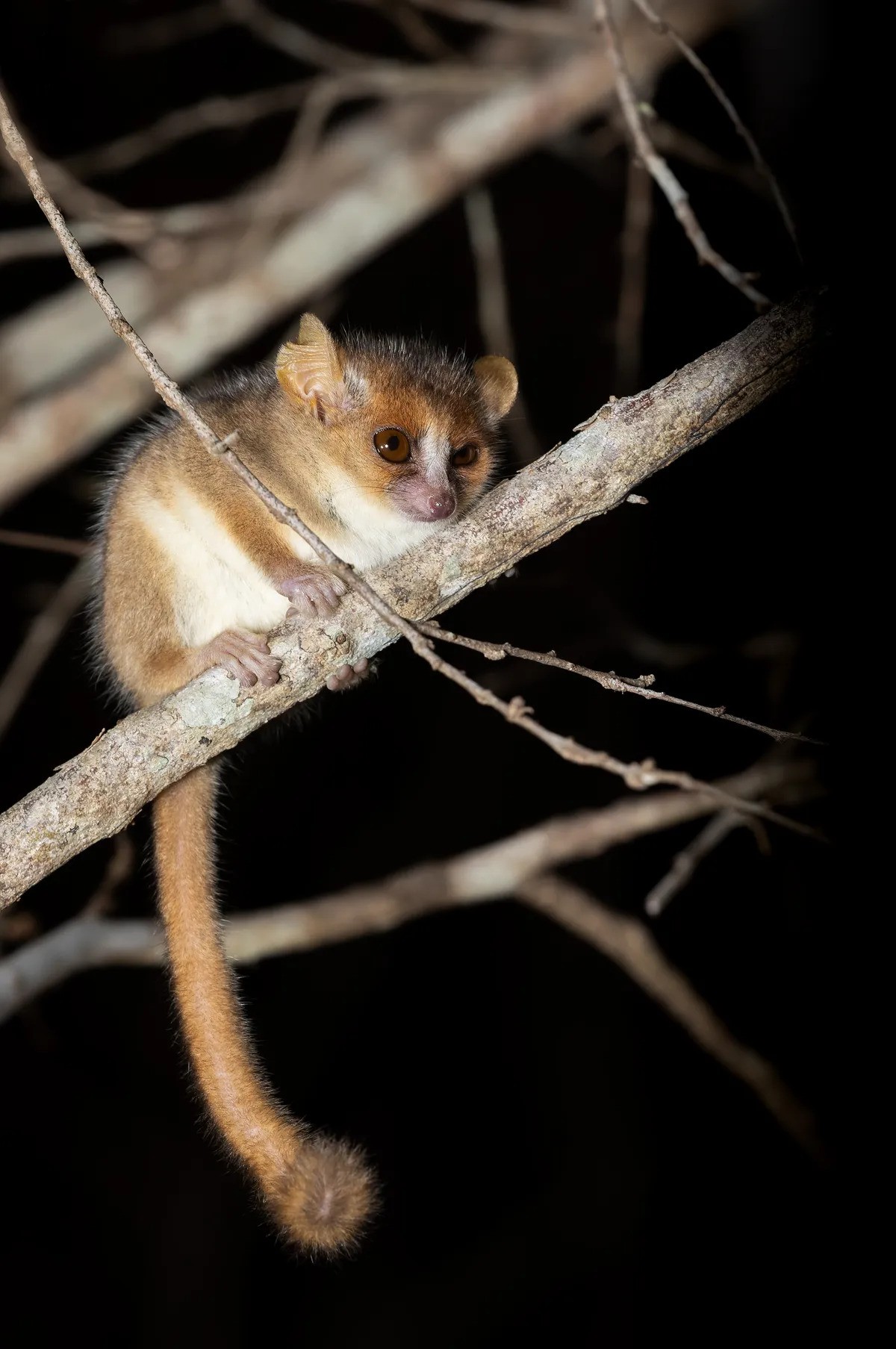Over 100 scientists and conservationists have come together to compile a report on the 25 most endangered primate species in the world, and the conservation action points needed to improve their current bleak outlook.
The report began in 2000 and has been updated each year since to reflect the world’s most critically endangered primate species. Including those in this year’s report, the species listed since 2000 number 103.
The threats to these species include habitat destruction, hunting, climate change, and the illegal wildlife trade. Some areas are worse affected than others, with Madagascar having four critically endangered lemurs on the list, including the world’s smallest primate.
Madame Berthe’s Mouse Lemur (Microcebus berthae) is the world’s smallest primate and lives only in Madagascar, where it is confined to a few fragmented forests. Its main threat is habitat destruction, especially slash-and-burn agriculture for maize and peanut planting. Its numbers have especially reduced over the last three years. The IUCN suggests that if efforts to control the loss of habitat aren’t made a priority, the species could become extinct as soon as 2030.

The world’s smallest primate has had a dramatic population decline in just the last three years.
Image Credit: Artush/Shutterstock.com
“These primates are vital to ecosystems and human cultures. Their loss would be irreversible,” said Dr Russell Mittermeier, Chair of the IUCN SSC Primate Specialist Group, in a statement seen by IFLScience.
On the opposite end of the size scale, the rarest subspecies of great ape, the Cross River gorilla (Gorilla gorilla diehli), is also included on the list alongside the Tapanuli orangutan (Pongo tapanuliensis), the rarest of the great ape species. The Tapanuli orangutan was only described in 2017, and numbers only 800 left in Sumatra.

A male Tapanuli Orangutan (Pongo tapanuliensis).
Image courtesy of Andrew Walmsley
Across Asia, primates native to the Mentawai Islands, off the coast of Sumatra, suffer from hunting and logging practices, which affect the Kloss’s gibbon (Hylobates klossii), the pig-tailed snub-nosed langur (Simias concolor), and the Siberut macaque (Macaca siberu), among others.
The latter is found only on the island of Siberut, the northernmost Mentawai island. While eagles and pythons are its natural predators, humans converting the land into oil palm plantations seems to be the biggest threat it faces, along with other habitat destruction. While their meat is considered to be below average, even hunting pressures have increased on this species in recent years.
To combat these issues, the report suggests four key points of action going forward. The first calls for greater protections on critical areas of habitat, while the second point involves engaging local and Indigenous communities as stewards of their areas. The final two points call for greater monetary resources for conservation programs and to strengthen laws at a policy level against the illegal wildlife trade and deforestation concerns.
“We have the tools to save them, but we need immediate action and funding to turn the tide,” added Dr Christoph Schwitzer, a co-editor of the report.
The full report can be found here.
Source Link: World's 25 Most Endangered Primates Revealed – And Humans Are To Blame